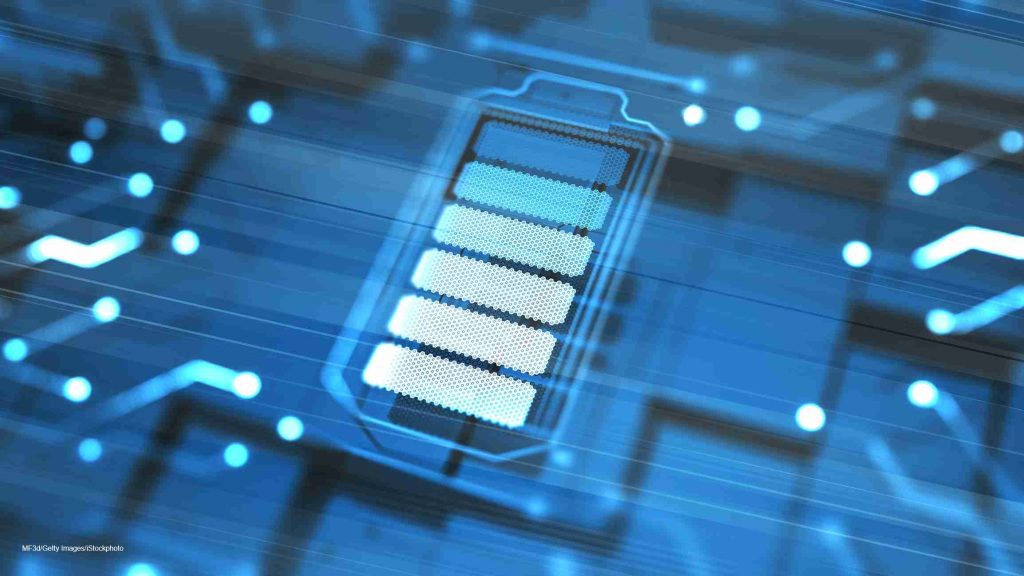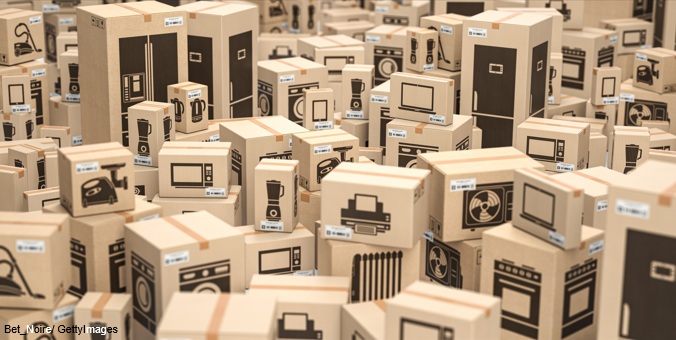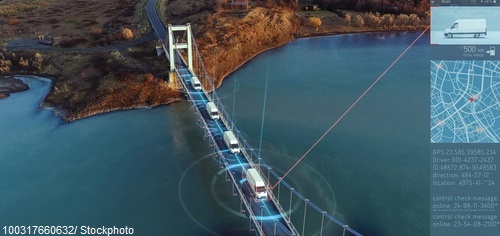Certification Requirements for Cascade Use of Batteries for New Energy Vehicles announced
The State Administration for Market Regulation (SAMR) and the Ministry of Industry and Information Technology (MIIT) of the People’s Republic of China announced the establishment of a new technical committee for cascade use of batteries in New Energy Vehicles (NEV) on Sept. 4, 2023. A mandatory certification for this product category in China was further introduced, which is to follow in the next few years. The MIIT is already administering the battery manufacturer registration according to GB/T 34014, which also applies for cascade use. Many other automotive components are already subject to mandatory CCC certification in China, while others are subject to CQC certification or CCAP certification. In addition, tests for traction batteries are already compulsory in the country in accordance with GB 38031, GB/T 31484 and GB/T 31486.

In a first step, SAMR and MIIT defined the regulations for battery packs for uninterruptible power supplies (UPS) and emergency power supplies (EPS). They fall under the GB standard GB 40165-2021 and the standard YD/T 3768.1-2020. This section was explicitly declared as the “first batch” by the authorities, which, combined with the establishment of the technical committee, suggests further expansion and elaboration of the requirements in this product spectrum.
New Energy Vehicles (NEV) are a central component of China’s strategic transport and environmental policy. Alternative propulsion and related technologies are becoming increasingly popular in the People’s Republic, but are subject to growing regulatory and certification requirements.
The Chinese GB Standards and Implementation Rules are regularly updated or newly issued by the authorities, often having considerable implications for the corresponding product manufacturers. New releases and updates are usually not announced and must be independently tracked and implemented by the production enterprises. A failure to do so may result in severe consequences, including even a possible sales ban.
For more information on how CCC certification, the CCC Self-Declaration and voluntary CCAP or CQC certification may affect your company, or for more information about CCC certification in general, please visit our News Section where you will find current updates twice a week.
Please do not hesitate to contact us for further details and consultation. You can contact us via email, Chat, or call us (UK: +44 2071931135, Europe: +49 69 2713769150, US: +1 773 654-2673).
You can also check out our free CCC-Brochure, which can be downloaded as a PDF file. The brochure also contains information on the CCC Self-Declaration and the voluntary CQC- and CCAP-Certification).
MAN Energy assures China of help to achieve climate targets
Augsburg, Germany-based MAN Energy reiterated its pledges to help the country achieve its climate goals through further investment in China, a top company official told Chinadaily. For example, China offers excellent opportunities for the company in the areas of hydrogen, CO₂ capture, CO₂ storage and the growing demand for renewable energy. MAN Energy Solutions will therefore invest more in China in these areas and also push its heat pump business, said MAN Energy Solutions Global CEO Uwe Lauber. Based in Augsburg, Germany, MAN Energy Solutions is a provider of CO₂ reduction solutions for shipping and other industries and has been doing business in China for around 100 years. Components in the industrial and energy sectors must be awarded a CCC certificate in order for the products to be exported to China or manufactured locally.

For example, demonstration plants for CO₂ capture and storage are currently being built in China with local partners. These are expected to be further expanded over the next two years, eventually reaching a capacity of 500,000 tonnes of carbon dioxide annually. Zhu Yi, a senior analyst at Bloomberg Intelligence, said that despite high operating and investment costs, CO₂ capture and storage plants are one of the most effective ways for Chinese factories to reduce greenhouse gases. Increasing adoption and scaling of these plants will also reduce future costs, she said. MAN Energy Solutions is currently in early-stage discussions with Chinese partners such as China Petrochemical Group (Sinopec), the world’s largest refining company by volume, and Hangzhou Oxygen Plant Group. It was indicated that China continues to account for the largest share of the company’s revenue at 30 per cent. He expects this share to increase further as China has committed to achieving a carbon-neutral economy.
For more information on how CCC certification, the CCC Self-Declaration and voluntary CCAP or CQC certification may affect your company, or for more information about CCC certification in general, please visit our News Section where you will find current updates twice a week.
Please do not hesitate to contact us for further details and consultation. You can contact us via email, Chat, or call us (UK: +44 2071931135, Europe: +49 69 2713769150, US: +1 773 654-2673).
You can also check out our free CCC-Brochure, which can be downloaded as a PDF file. The brochure also contains information on the CCC Self-Declaration and the voluntary CQC- and CCAP-Certification).
American home appliance manufacturer launches new business strategy for China
Hamilton Beach, an American home appliance manufacturer with more than a century of history, announced a change in its business strategy in mid-June. The plan involves a shift from selling identical products to those sold in the US in China. Instead, the company plans to develop customised products adapted to the Chinese market, produce them locally and sell them in the future. A spokesperson for Hamilton Beach’s Chinese marketing department said they will use a Chinese team and suppliers to develop new products to meet the needs of local customers. Household appliances must be awarded a CCC certificate so that the products can be exported to China or manufactured locally.

Although Hamilton Beach’s sales figures in China still lag behind those in America, the company is optimistic about winning Chinese customers with its new strategy. The home appliance manufacturer sees China as an important market with great potential. “The US market is the present, while China will be the future,” said the company spokesperson. In 2022, Hamilton Beach sold about 32 million appliances in the US. China’s population, on the other hand, is four times larger than that of the US, and with 400 million middle-class customers, it represents a significant opportunity, according to the company spokesperson. Hamilton Beach is not the only US company currently expanding its China business, according to CGTN News. Despite discussions of a decoupling of the two countries’ economies, their economic ties remain stable. For example, trade between the US and China hit a new record high last year. According to a business consultant, the large number of Chinese customers and good manufacturing opportunities continue to attract foreign companies.
For more information on how CCC certification, the CCC Self-Declaration and voluntary CCAP or CQC certification may affect your company, or for more information about CCC certification in general, please visit our News Section where you will find current updates twice a week.
Please do not hesitate to contact us for further details and consultation. You can contact us via email, Chat, or call us (UK: +44 2071931135, Europe: +49 69 2713769150, US: +1 773 654-2673).
You can also check out our free CCC-Brochure, which can be downloaded as a PDF file. The brochure also contains information on the CCC Self-Declaration and the voluntary CQC- and CCAP-Certification).
BYD signs another Deal to develop Autonomous Vehicles
Earlier this year Chinese automaker BYD inked a deal with startup Nuro to develop and produce a third-generation self-driving delivery vehicle. The partnership announcement came shortly after a successful Series D funding round in the fourth quarter of 2021, which saw U.S.-based Nuro raise a total of $600 million. BYD plans to increase manufacturing capacity at its Lancaster plant and create more jobs, according to Stella Li, vice president of BYD Co. Ltd. and president of BYD North America. Together with Nuro, BYD will launch a self-driving delivery vehicle that will make road travel safer in the U.S., Li added. Vehicles and components must be awarded a CCC certificate in order for the products to be exported to China or manufactured locally.

The third-generation vehicle has a larger payload as well as novel safety technology. For example, the cargo volume is said to be twice that of the previous Nuro R2 model, and the cargo area features variable compartments. Also new are temperature-controlled compartments that can keep goods cold or hot. Safety improvements include external airbags for pedestrian protection and a new sensor package with cameras, radar, lidar and thermal imaging cameras that provide 360-degree all-around vision.
“BYD has a large network of global OEM suppliers in the EV field. Therefore, we are looking forward to cooperating and expanding our production,” said Jiajun Zhu, co-founder and CEO of Nuro. According to Zhu, the plan is to use hardware components from BYD’s EV platform to develop innovative autonomous vehicles for the U.S. market. Details of the collaboration were also revealed: For example, BYD will be responsible for the development, construction and testing of the vehicles. In addition, hardware such as batteries, motors, electronics and displays will come from BYD. Nuro contributes its technology in the field of autonomous driving, control and sensors. The first assembly step with components purchased worldwide is done by BYD at its Lancaster, USA plant. Then Nuro completes the vehicles with the electronic systems at their new plant in Southern Nevada.
For more information on how CCC certification, the CCC Self-Declaration and voluntary CCAP or CQC certification may affect your company, or for more information about CCC certification in general, please visit our News Section where you will find current updates twice a week.
Please do not hesitate to contact us for further details and consultation. You can contact us via email, Chat, or call us (UK: +44 2071931135, Europe: +49 69 2713769150, US: +1 773 654-2673). You can also check out our free CCC-Brochure, which can be downloaded as a PDF file. The brochure also contains information on the CCC Self-Declaration and the voluntary CQC- and CCAP-Certification).



